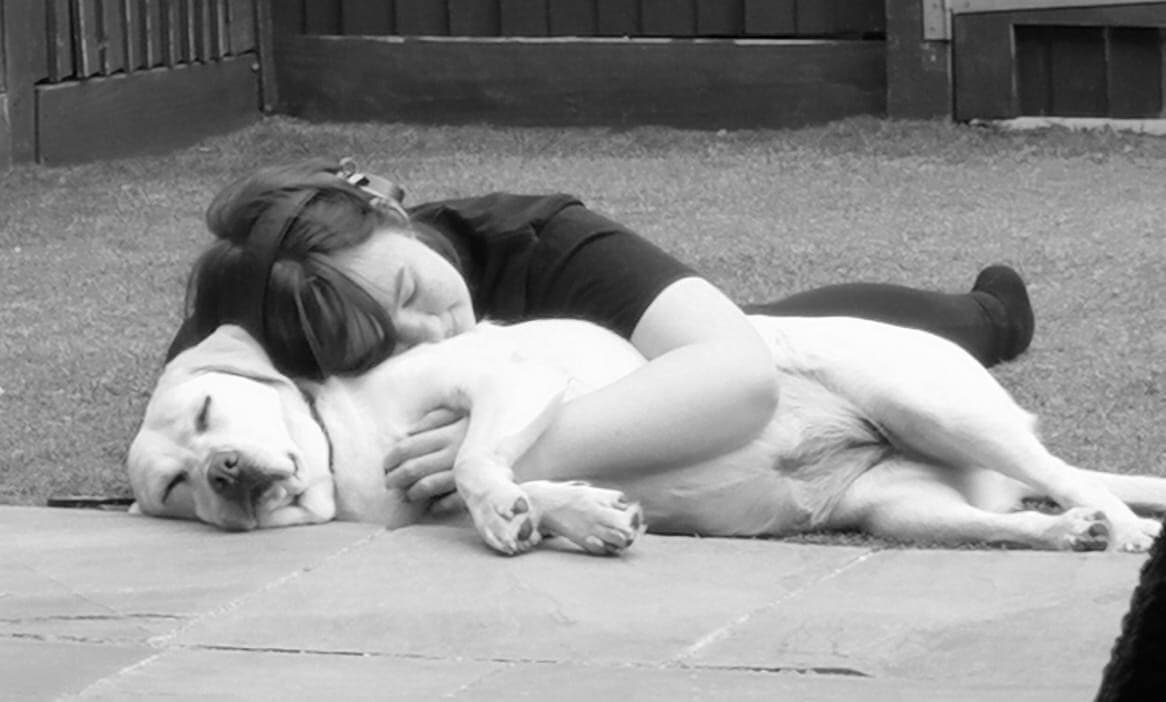
01 May 2025
We’re just two months away from Trek for Change, CPMG’s annual charity walk! This year, we’re proud to be raising funds for Dogs for Autism.
At Dogs for Autism, the bond between a person and a dog goes far beyond companionship. Through expert training and life-changing partnerships, the charity is helping autistic individuals across the UK lead more independent, confident, and fulfilling lives. In this Q&A, we speak with the team behind Dogs for Autism to learn more about their mission, how their incredible dogs are trained, and the real impact they have on individuals and families alike.
Can you tell us a bit about the mission of Dogs for Autism and how it impacts autistic individuals and their families?
Our mission is to empower autistic individuals to live more independent, confident and enriched lives with the help of specially trained assistance dogs. These dogs are more than companions - they’re highly skilled partners that offer safety, reduce anxiety, help with routines and open up new possibilities for communication and social interaction. For families, this can mean greater peace of mind and a better quality of life for everyone involved.
What makes autism assistance dogs different from other types of assistance dogs?
Autism assistance dogs are trained with a very specific focus: to support autistic people with their unique needs. This can include interrupting repetitive behaviours, preventing bolting during sensory overload, and providing deep pressure therapy to help prevent meltdowns.

How does the process of selecting and training an autism assistance dog work?
It starts with carefully selecting puppies with the right temperament. During their first year, they live with our wonderful volunteer puppy parents and under the guidance of our trainers, they learn to become extremely well-behaved young dogs. They then enter the second stage of training at our centre, where the training becomes more specialised. At this stage, they are very carefully matched with their future family, and their training is tailored even further. Every autistic person is unique and has different needs, so we work closely with each recipient to ensure the dog’s training aligns with real-life situations. The final stage is a gradual introduction and bonding process, where the dog and handler become a team.
What are some of the key ways these dogs help enhance confidence, independence, and emotional well-being?
For many autistic people, the world can be overwhelming. An assistance dog acts as a steady anchor - offering reassurance in unfamiliar environments, easing social interactions, and encouraging greater independence. As one mother shared:
“Today, Poppy, our amazing dog, took my daughter out to play. This might not sound like a big thing—until you understand that she hadn’t gone outside for nearly four years due to her anxieties. Having Poppy has made it possible to go outside, to play, to laugh, to feel safe and protected from the world around her. Poppy has made living a normal life possible.”
How much does it cost to train and support an autism assistance dog throughout its working life?
Each dog costs us around £25,000 over its working lifetime. That includes breeding, training, and ongoing support through to retirement. We provide our dogs free of charge to the families we support, which is why fundraising and donations are absolutely critical.
Can you share any heartwarming stories of how these dogs have transformed the lives of autistic individuals?
Here are a few quotes from some of our recipients:
“Daisy will warn of a meltdown around 20 minutes before we can tell it’s going to happen. Marcus's meltdowns can be physically dangerous, both for him and those around him, so Daisy's job is incredibly important as we can intervene and put strategies in place before his emotions are beyond his control.”
“Marcus has significant learning disabilities and we never dreamed he would be able to learn how to self-regulate and control his meltdowns. What Daisy has done for him and our whole family is nothing short of a miracle.”
“Luna is a loyal, non-judgemental, and responsive bundle of tail-wagging joy—the definition of a positive companion and true friend. Zana has multiple disabilities which mean she struggles to make connections and communicate. A few weeks ago, Zana said her second ever proper word—and that was ‘Luna’.”
“Without the dog, my daughter would either be in an institution or dead. That might sound dramatic, but having the dog brought her back from the edge of a very large cliff and showed her a future she could see herself living in—and the support to do it.”
How can fundraising events like Trek for Change help your organisation continue its vital work?
Every step taken helps fund more dogs, reach more families, and shorten our waiting list. It also brings people together in support of a cause that’s changing lives. Events like this are the reason we can keep doing what we do.
If someone wants to support Dogs for Autism beyond the charity walk, what other ways can they get involved?
There are many ways to help—monthly giving, sponsoring a puppy, corporate sponsorship, or hosting your own fundraising events.
We’re also running a virtual fundraising campaign throughout May called Lead the Way. You can read more about it here: Lead the Way 2025. Every bit of involvement makes a difference.
What’s your vision for the future of Dogs for Autism? Are there any upcoming initiatives or goals you’re working towards?
Our goal is to meet the growing demand for autism assistance dogs across the UK. That means expanding our training facilities, recruiting more trainers, and continuing to innovate how we support families.